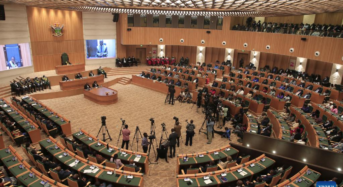
PARLIAMENT has said there is need to improve teachers’ welfare as part of measures to revitalise the country’s education system.
The call was made by several legislators at a workshop hosted by the Zimbabwe Teachers Association (Zimta) in Harare yesterday.
Primary and Secondary Education Parliamentary Portfolio Committee chairperson Ophias Murambiwa said investing in teachers was crucial in achieving educational excellence.
“Teachers are the heart of our education system. Investing in their continuous professional development, improving their welfare and providing them with the necessary resources are fundamental to achieving educational excellence. An empowered and motivated teaching workforce can transform challenges into opportunities for growth and innovation,” Murambiwa said.
The lawmaker called for mechanisms that ensure long-term financial support for education. This includes forging strategic public-private partnerships, creating dedicated education development funds and establishing transparent financial management systems that inspire public confidence, he said.
“We need to scale up efforts to expand classroom capacity, modernise learning environments, and integrate digital technology into every aspect of teaching and learning. A digital-ready education system is non-negotiable in today’s world.”
Zimbabwean teachers have been at loggerheads with their employer over salaries with the educators demanding a minimum salary of US$1 260 amid a deteriorating economic environment which has seen a sharp depreciation of the local currency, Zimbabwe Gold. Government says it does not have the resources to meet their salary demands.
Murambiwa said the Parliamentary Portfolio Committee on Primary and Secondary Education “remains steadfast in its oversight role, ensuring that every dollar invested in education is spent efficiently and equitably”.
- Zimta struggling to attract new blood
- Teachers demand US$700 salary
- Parly moves on teachers’ welfare
Keep Reading
“We are committed to rigorous monitoring and evaluation, holding stakeholders accountable and advocating policies that respond to the evolving needs of our learners,” the lawmaker said.
He said education financing was not just about allocation, but rather should impact outcomes and ensure that investments translate to improved quality and access for all students.
Murambiwa applauded Zimta for being instrumental in advancing the education agenda, “and for that, we express our profound gratitude”.
“Your efforts in equipping legislators with crucial insights have made a significant impact. It is clear that we must all work in unison — legislators, educators, parents and the private sector — to drive sustainable change,” he said.
“We must address challenges head-on, from financial constraints to infrastructure gaps, with determination and a shared sense of purpose.
“The resources we channel into this vital sector are not mere expenditures but transformative investments that yield boundless returns in developing human potential, fostering social unity and driving sustained economic prosperity.
“With courage, collective determination and an unwavering commitment, let us boldly reaffirm our dedication to advancing education for the benefit of every learner in Zimbabwe, striving together to build a future that uplifts and empowers all.”
Higher and Tertiary Education Parliamentary Portfolio Committee chairperson Minehle Gumede said the impact of increased funding on the education landscape in Zimbabwe could not be overstated, particularly as it had catalysed the establishment of vital innovation hubs within institutions of higher learning.
“The future of our nation hinges on the quality of education we provide today and with continued investment, we can ensure that our learning institutions produce not just graduates, but innovators and leaders of tomorrow.”
Sifiso Ndlovu, the Zimta chief executive officer, told lawmakers that the union is pushing for the creation of national commissions that bring together teacher unions and government to address critical issues in education and monitor the implementation of the recommendations.
The union also wants an amendment of the Public Service Act to provide for Collective Bargaining. It said the the Ministry of Primary and Secondary Education must “urgently introduce a Bill in Parliament providing for the Teaching Service Commission”.
“Education is a human right and a public good; and we call on authorities to protect education from corporate greed and influences,” the union said.










